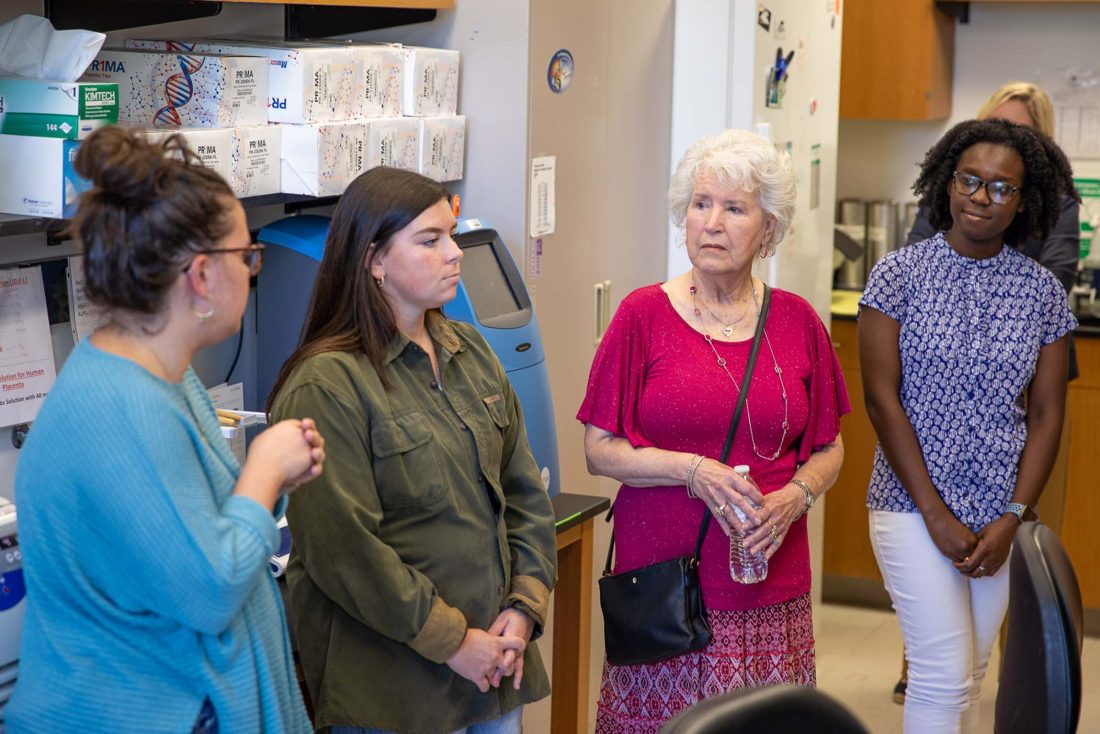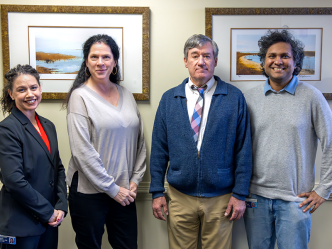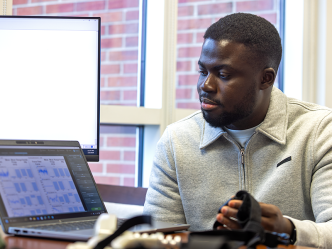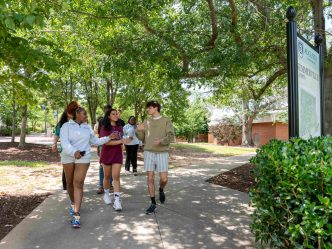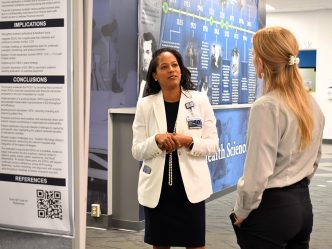For decades, the best way to find the lab of Thomas Abney, PhD, was to follow the laughter that echoed the halls of the Medical College of Georgia at Augusta University.
“He made science fun,” recalled his wife and scholarship donor, Eugenie (Jeanie) Abney. “He believed it was serious work and was always very thorough and organized, but he wanted his students to enjoy science.”
For many of Thomas’ students, the lab was more than a workspace — it was a launchpad. His ability to make research both engaging and enjoyable helped shape a generation of professionals who are now leaders in medicine, research and education.
To honor her husband, who passed away in 2024, Jeanie established the Dr. Thomas O. Abney Memorial Physiology Scholarship as a tribute to his lasting legacy. The scholarship fund supports graduate students with a financial need who demonstrate strong research potential and a deep commitment to advancing the field of physiology, which studies how the body’s organs, tissues and cells function and interact to sustain life.
According to Jeanie, her husband was always a scientist at heart.
“He fell in love with chemistry in high school; he loved the smells of the chemistry lab,” she said.
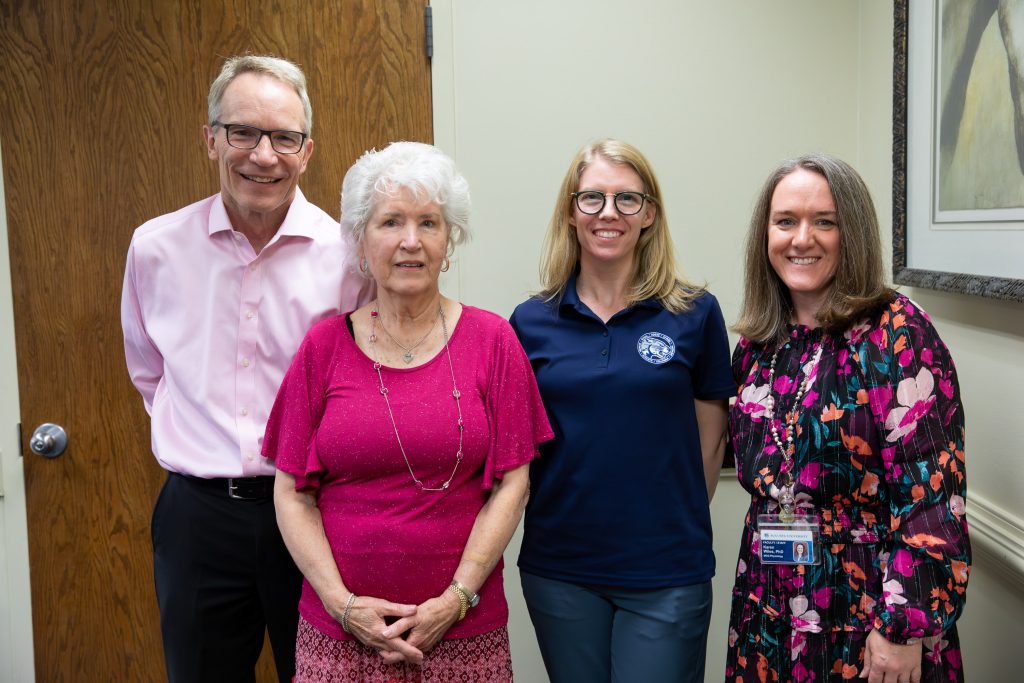
This passion sparked a lifelong fascination with scientific discovery. While completing his undergraduate degree in chemistry, his professors recognized his talent and encouraged him to pursue graduate education — a reminder of how mentorship can shape a person’s path. Thomas went on to earn his PhD in biochemistry from the University of Georgia, followed by a postdoctoral fellowship at the University of Texas at Austin.
He then began his teaching career at MCG in what was then the Department of Endocrinology, which later merged with the Department of Physiology.
An expert in reproductive endocrinology, Thomas conducted innovative research on how reproductive organs develop before birth, focusing on the cells and genes that guide their formation and hormone production.
His love for science and teaching was reflected both in his daily life and his mentorship style. He took time to answer questions thoroughly and had a gift for explaining complex ideas in simple, approachable terms. In the lab, he challenged the notion that serious work couldn’t also be fun. His commitment to his work was evident not only in his publications and awards but also in the varied success of his trainees. He taught them not just the technical skills needed in research, but also how to nurture the passion and curiosity that drive scientific innovation.
Many of the students who earned their PhDs in Thomas’ lab went on to become respected researchers, physicians and administrators — carrying with them a deep appreciation for the scientific process shaped by his mentorship. One notable trainee was Brooks A. Keel, PhD, former president of Augusta University, who kept in touch with his mentor over the years.
“Brooks often commented that he and the other students had so much fun working with Tom,” Jeanie said. “He recalled following the sound of laughter to find his way to the lab.”
In addition to being an award-winning researcher and passionate educator, Thomas was also a dedicated advocate for graduate students. He founded the first Graduate Student Research Day, which gave students the opportunity to showcase their work in front of faculty and peers.
“He said, ‘You know, this would be a good way for the faculty to see what the students know,'” Jeanie recalled. “It was a shoestring budget, and nobody really anticipated that it would grow after the first year. He always enjoyed interacting with the students and seeing what they knew.”
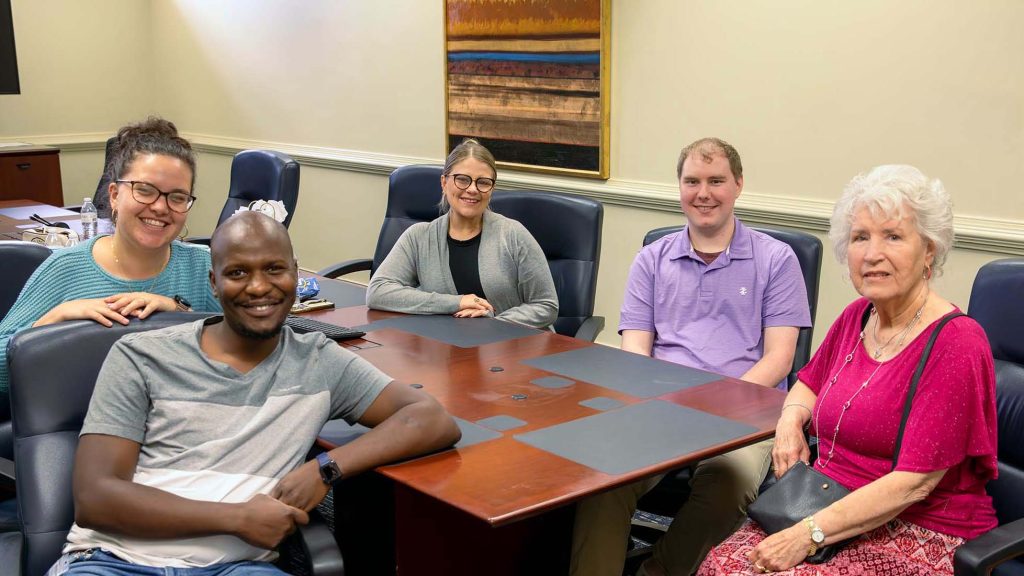
Earlier this year, The Graduate School celebrated the 40th annual Graduate Research Day, welcoming 195 graduate and postdoctoral participants. Now one of the largest research events of the year, its continued success reflects Thomas’s longstanding advocacy and dedication to elevating the visibility of graduate student research.
Even after retiring as a professor emeritus, he stayed engaged with the university through the AU Retiree Association, where he held several leadership roles and continued to support the university’s research mission.
Outside of the lab, Thomas could often be found on Clark’s Hill Lake with his fishing buddy. He was a family man and sports fan, particularly an avid Georgia Bulldogs fan.
“I always teased him that he probably only married me because I had the football tickets,” Jeanie shared with a laugh.
Although they were childhood sweethearts, they initially went their separate ways after high school but reconnected later in life while planning their class reunion.
“He called and asked if I wanted to serve on the committee, and I said sure,” she recalled. The calls soon became more frequent, and in 2003, they were married.
Carrying forward her husband’s commitment to supporting young scientists, Jeanie created the Abney scholarship fund to ease some of the financial pressures doctoral students face and support them throughout their PhD journey.
“I want them to get their PhDs, and I want to see their impact in my lifetime,” she said, remembering how committed Thomas was to his work and to fostering curiosity in others. “Tom was so devoted, and we always impressed on our granddaughter how important education is — not just for a good career but for independence.”
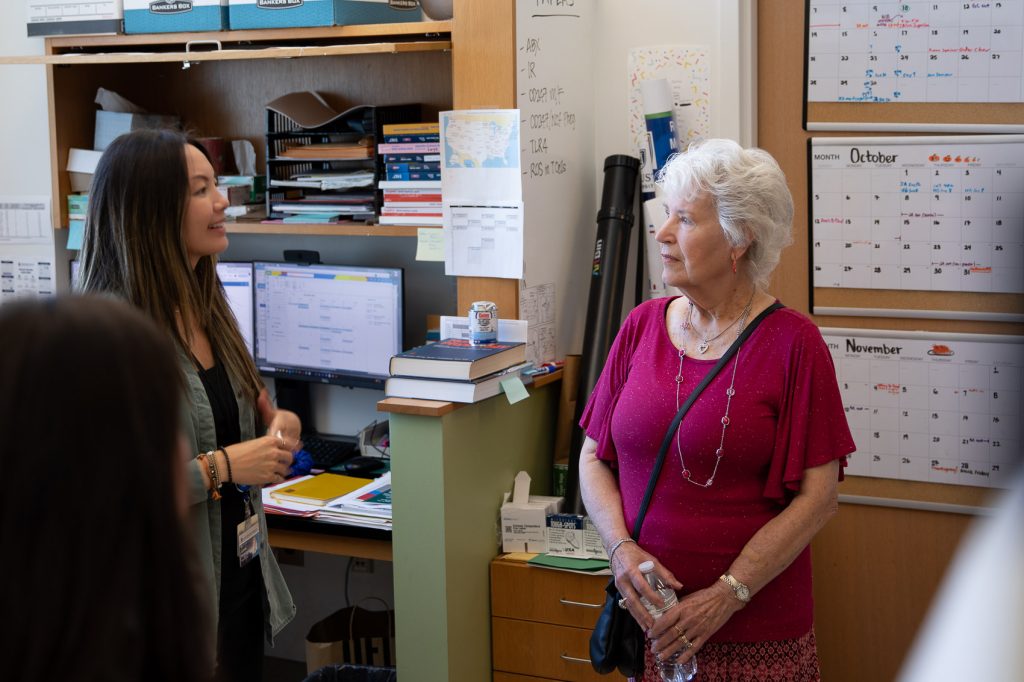
Thomas spent his life inspiring the next generation of researchers, and this scholarship ensures his passion continues to shape the future of science. This scholarship will empower students to pursue life-changing education, career development and independence, while also supporting their work in advancing groundbreaking research. Through this endowment, the Abneys’ shared belief in the transformative power of education inspires and empowers the next generation of researchers.
“The Thomas O. Abney Memorial Physiology Scholarship represents more than financial support — it represents a legacy of excellence in physiology and a commitment to training the next generation of physiologists,” said Jennifer Sullivan, PhD, dean of The Graduate School and professor in the Department of Physiology. “By easing financial burdens, this scholarship allows our graduate students to fully immerse themselves in rigorous scientific inquiry, pursue bold ideas and contribute meaningfully to the field of physiology. We are extremely grateful to the Abney family for this impactful gift.”
When asked what her husband would want students to remember most, Jeanie said that he would want them to enjoy themselves while taking their work seriously. These students are preparing to lead transformative research in human health, and the importance of their work should not be overlooked.
At the same time, Thomas believed innovation thrives when researchers hold onto the passion, commitment and joy in discovery that first drew them to the field. His story is an enduring part of MCG and AU history, and, through the fund established in his name, his legacy of mentorship, advocacy and discovery continues to leave a meaningful mark on students’ lives.
To support the next generation of life-changing, life-saving research at Augusta University by donating to the Dr. Thomas O. Abney Memorial Physiology Scholarship or to make a donation to The Graduate School, contact Augusta University’s Philanthropy and Alumni Engagement team.
 Augusta University
Augusta University
